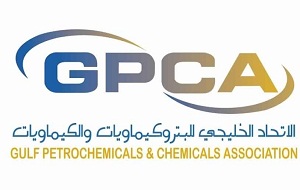
Gulf Petrochemicals and Chemicals Association (GPCA) estimates that by 2020 the region’s plastics conversion will grow phenomenally to reach 7.5mn tons per annum capacity, an increase of nearly 40% of current output.
These statistics were revealed at ArabPlast 2015, the region’s biggest petrochemical exhibition and one of the largest in the world, which is being held in Dubai International Convention and Exhibition Centre until the 13th of January 2015.
Unveiling an exclusive white paper on the GCC petrochemical industry, ArabPlast’s knowledge partner Frost & Sullivan projected that global petrochemical companies would increasingly set up strategic alliances in GCC. According to its latest report, GCC rail developments would accelerate the growth of the industry through increased intra-region petrochemical trade.
Satish Khanna, General Manager, Al Fajer Information and Services, Co-organiser of the show along with Germany’s Messe Dusseldorf, said that the trend among global companies to set up major alliances in the region as part of the target to add over 15 million MT of capacity across various petrochemicals until 2017 had given a strong boost to ArabPlast 2015.
“From 2008 – 2013, the region’s plastics production capacity has almost doubled, rising from 12.7mn tons per annum (tpa) in 2008 to 24.7mn tpa in 2013. For 2018, the overall plastics production is expected to reach roughly 35mn tpa, according to Gulf Petrochemicals and Chemicals Association (GPCA),” Khanna added.
“On day two of the show, there was a highlight on effect pigments that enable a wide range of interesting plastics applications,” added Jeen Joshua, Group Project Manager of ArabPlast 2015. “There was a display of visual effects that provide colorists and designers with a broad spectrum of options to emphasize the unique character of products with attractive shades and glitter effects.” He added: “A new generation of effect pigments has been tailored for functional properties. For example, there was a display of family of products from ECKART that is suitable for the manufacture of ‘Cool Plastics.’ These plastics heat up less, as the functional pigments are extremely efficient at reflecting sunlight. This means that car dashboards and garden furniture stay cool, with comfortable surface temperatures, even if exposed to direct sunlight.”
Source : WAM News Agency for United Arab Emirates












